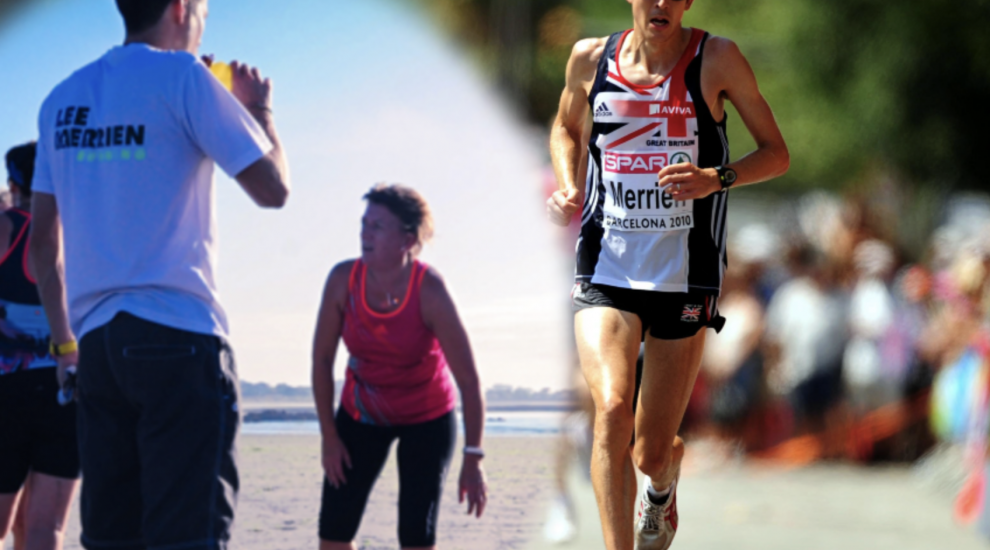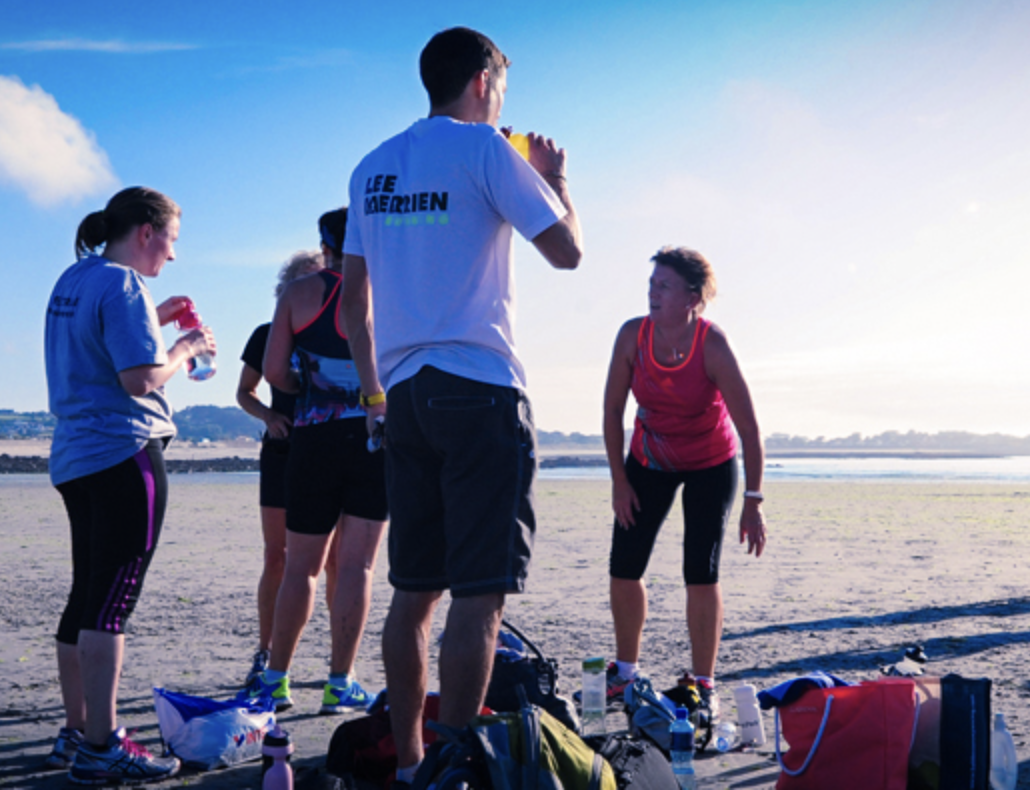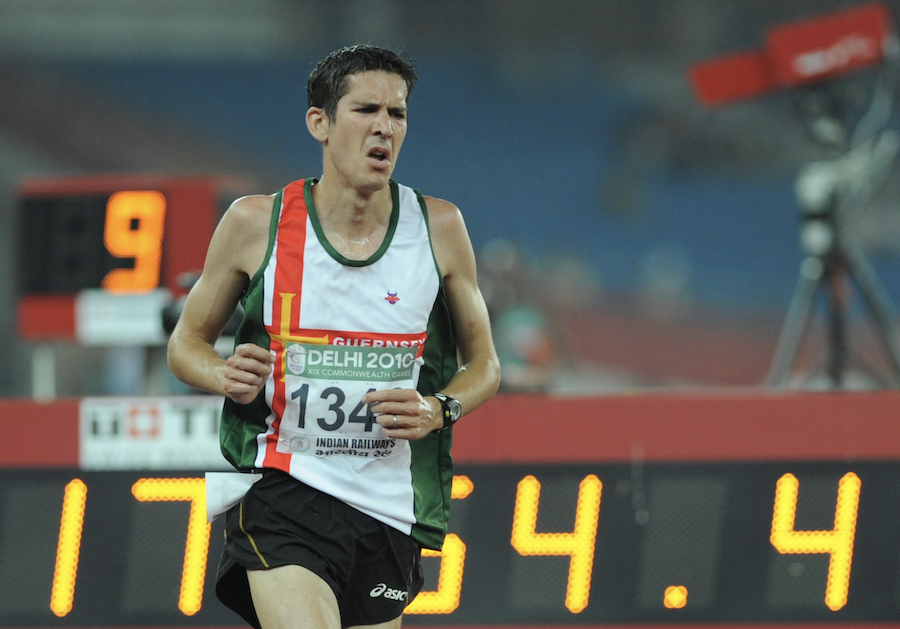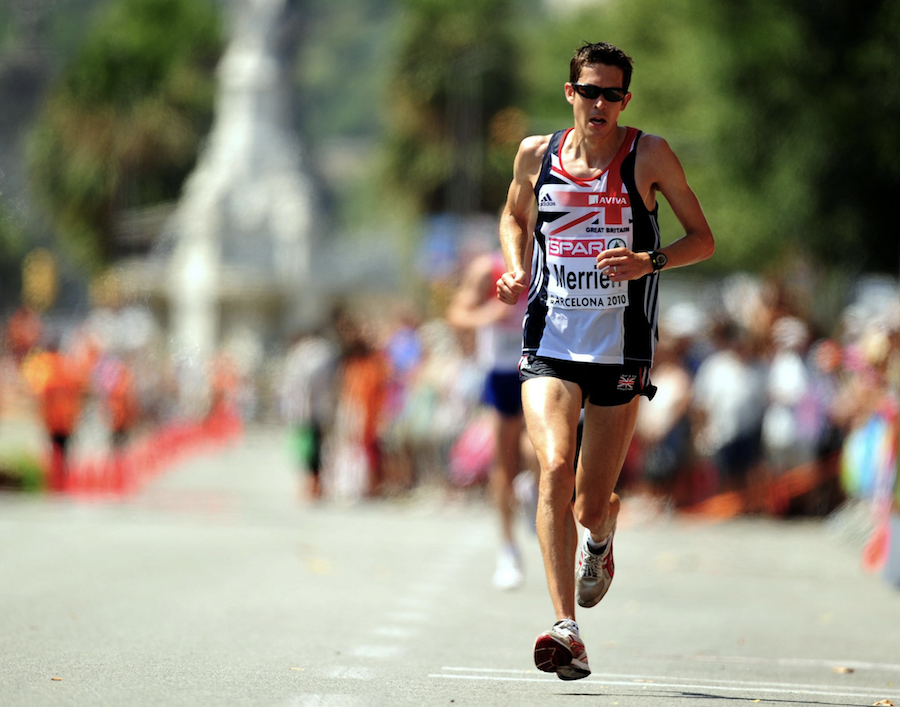


Lee Merrien has competed on the European, World and Olympic stages. He also has nine Island Games gold medals to his name. Now he is passing on that experience as a coach.
Here he talks to Nick Mann about that role and how it plays out during Island Games week.
I think sometimes, especially with my side of athletics, endurance running, you often fall into it. Most runners, once you've been doing the sport for a while, get an idea of how things should be done, a bit of expertise and knowledge, that you then pass on to up and coming or new runners. One of the earliest people I coached was actually Tom Druce [now Guernsey Athletics’ development officer]. He was trying to make the Guernsey Island Games in 2003 for the 800m. I had a coach as well at the time. So ultimately, a lot of what I was doing with him, I was passing on, while developing my coaching knowledge and my own approach to things.

Pictured: Lee Merrien offers tailored coaching sessions for athletes of all abilities.
We have a few people on the island who have been involved in the sport for a while, the likes of Paul Ingrouille for example, who’s got a wealth of experience as both an athlete and a coach, and event organisers, those people who are the lifeblood of the sport.
You do pick out things, there are aspects that stick in your memory. When you're a youngster, you tend to put a lot of trust in a coach, you often don't question them. When I look back, there were certain things I probably wouldn't have expressed in a certain way or put so much onus on the athlete, especially young athletes who are growing up. Ultimately it’s supposed to be fun and fuel your enthusiasm for many years to come.
You’ve got to think about technology particularly.
When I first started running as a child, you might have had a Casio watch, actually I see that the first Brit home in the London Marathon this year, Emile Cairess, was wearing one. My first watch when I was running would tell you how far you’d run but you’d have to put in how many strides a minute you’re running and how long your stride length was and obviously that doesn’t stay the same. But now with Garmin, various apps on phones, you can track all of your data and follow other people’s training as well. It can be quite insightful to be able to see what experienced runners are doing, but equally it can be bad if you try to replicate things before you’re ready for it. You’ve also got shoe technology which has only happened in the last few years. It wasn’t there when I was competing five years ago, so that’s been a really rapid evolution and most shoe companies have now caught up.

Pictured: Lee Merrien has competed on the international stage.
I coach far more recreational runners. When I was an active athlete, I used to go away on training camps quite a lot. I wasn’t really sure where I was going in terms of a working front. I wasn't an athlete that could ultimately be self sufficient. I wasn't quite at the level to even support myself in that way. So I worked in the fitness industry to start with and that evolved. The running groups that I now do, no one was really doing that sort of thing. Even online coaching. Again, I suppose that ties in with technology being more prevalent and making that sort of thing a little bit easier. That was something I was able to do when I was away. So if I was in France, or Africa or wherever, as long as I had people to do the delivery side, then I could run that remotely. Obviously it was something that I always enjoyed doing anyway. So it became a natural evolution and it grew a little bit.
When it comes to championship type events, sometimes it's just about being there and doing some of the really basic things, putting the athlete’s mind at ease, talking through things, just getting the information out to them. The Games experience is a little different to just turning up for a road race, for example, or some local track races. You've got call room procedures which can be a bit of a cauldron of nerves, just sitting in and around other athletes that you're competing against. If you're someone that gets quite nervous before running, those sorts of things can derail your race if you let it get to you. There are simple things like making sure they've got everything, like spikes, a vest, it's pretty amazing how even experienced athletes, in the heat of the moment, might just forget something like that.
Outside of the home Games in Guernsey in 2003, one of my best memories in sport was the 2009 Games in Aland. It was all in this beautiful, really nice place and I distinctly remember being in sunshine. I had a race against Janne Holmen - he was a European marathon champion in 2006 and had already won the 10,000m. I was racing him over the 5,000m. A lot of the home crowd were probably expecting him to win pretty comfortably given he’d already won the 10,000m.
I wasn’t going to race the 5,000m because I had the British Championships a week or 10 days later. My UK-based coach had told me to just do the 1500m to have an under distance race ahead of that. But I really wanted to do the 5,000m. So it was quite late when I decided to do it.
There was a really big crowd down and there was probably a bit of a shock from their perspective when I managed to beat Janne. That one really sticks in my mind.
Definitely. The Games itself has grown from where it was to an international standard event. There’s a number of people that are international level that could potentially turn up, especially in athletics. There was the European marathon champion when I raced, and we’ll have internationals in the Guernsey team this time. So it’s something that people want to experience.
Things like call room procedures will be new to some people. Dealing with rounds to qualify for a final, so you need to be at your best for a week rather than just a one off race, will be too. They can use these different experiences to grow.

Pictured: In 2012 Lee was the first Brit home in the London Olympic marathon.
That’s one of the big things that’s talked about whenever you’re a host country. It’s a hard thing to measure. Who’s to know how someone has been inspired? They might have a memory when they’re a small child of some sport taking place with this amazing crowd on their doorstep, different sports, and it subconsciously flicks a switch.
The schools are coming along to watch some of the events. The last time we held the Games was in 2003, so twenty years, and it’s likely to be a similar cycle before we get the Games back here. Hopefully some of those kids watching the sport may be inspired to get involved and they later get to compete in the next home Island Games.
Bailiwick Express will be the home of Island Games coverage before, during and after the event. Read all about the sports, the islands and meet some of the competitors in our special preview magazine, listen to our Beyond the Games podcast series and then follow the action during Games week on our website and social media.
Comments
Comments on this story express the views of the commentator only, not Bailiwick Publishing. We are unable to guarantee the accuracy of any of those comments.